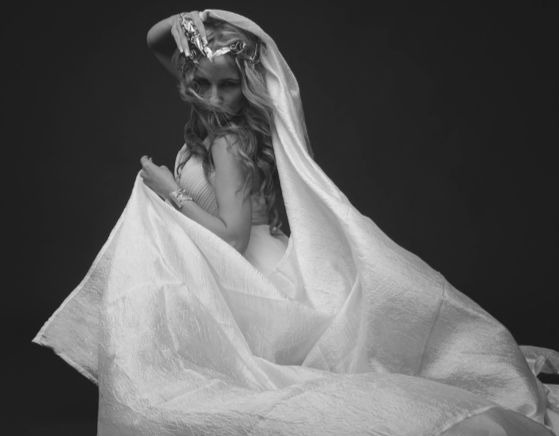Re-Envisioning Abundance, Fortune and Responsibility to the Community.

{source}
“And there but for fortune, may go you or I…” ~ Phil Ochs, There but for Fortune
When it comes to abundance and money, many of us are so steeped in fear of lack that it becomes easy to forget we are part of a community. We create artificial rules about deservingness or merit to describe our own achievements while casting judgment on others. Yet we all face crises.
We all face the crossroads, and we all have ground beneath our feet which may be solid or shaky according to circumstances beyond our control, willpower or self-worth.
Familiar cornerstones of our attitudes toward wealth and abundance are based on assumptions, some of which are rooted in dogma. The wealthy, we are told, are somehow more deserving, that they have proven something that the rest of us should take note of.
Even as many of us swap the Protestant work ethic for a more Age-of-Aquarius set of standards, by which wealth is not a demonstration of godliness, but a demonstration of having the right kind of positive energy, we become susceptible to perpetuating the cycle of poor-shaming and judging ourselves as immune to poverty.
We believe we are one paycheck away from joining the affluent when in reality we may be one disaster away from homelessness. We are told that those who lack financial stability are spending their money on booze, women and movies when in reality the expenses draining our brothers and sisters dry are more likely to involve healthcare and housing.
Optimism and a positive attitude help one to be open to opportunities that can improve one’s situation. Let us not overlook the undertones of poor-shaming that can, if we are not careful, underscore the assumption that those struggling financially just weren’t enlightened enough.
“They just aren’t aligning their consciousness with the right energy,” I often hear people say.
But is this another example of poor-shaming cloaked in New Age ideology?
Is this booze, women and movies behind a beaded curtain?
Embodying energy aids in manifesting outcomes, and this is also true of the energy of abundance, but we must not overlook the very real obstacles faced by those whose circumstances could easily be our own. Unemployment, homelessness, food insecurity, disability are examples.
Yes, a shift in consciousness can allow one to access resources and overcome obstacles.
Yet anyone who has faced devastation, trauma, and crisis knows that in the moment, and between crisis and recovery, the outlook is not so optimistic. It is my belief that the community’s role is to create a container in which one can securely go through the despair and find their way back to light, to the other side of the tunnel at which point it becomes clear:
Yes! I can transform, I can embody something more than the (illness, violence, poverty, addiction) that has gripped me in the past.
I don’t believe this insight occurs at the point of crisis. We do a disservice to those in dire straits when we expect them to stumble through, to psychologically, socially or physically walk it off and hope for the best. To just be more positive.
Last fall, I toured a local YWCA to explore collaborating for a Queen Up! event. As a social worker, I’ve worked with women finding temporary refuge and services from these programs. I recalled years ago, while still in graduate school, working with a client who lived at the YWCA, where she sought refuge from a relationship that had drained her of material resources and in which she and her child were being abused.
At the time, I was in my early twenties and my client shared at one point that she had started school for the same course of study I was pursuing. She was intelligent and every bit as capable of being on the path that I was on. I also came to realize, shortly after meeting her, that an unhealthy relationship I had been in could just as easily set me on the path her life had taken.
This realization was a catalyst for a difficult decision, to leave the person I had been living with and planning to marry.
My client had no other family, and at the time, no money of her own.
I had an overwhelming amount of credit card debt, but also a family with a spare room that I could stay with. I didn’t have the added responsibility of figuring out how I would raise a child alone.
There but for Fortune.
Years later, after being hit by a car as a pedestrian, I was unable to work for a month. Thanks to bureaucracy, it would be about that time before any money came from insurance. I would have no income for a month and a half, very little savings, and a mortgage, student loan, car payment, and other monthly bills to manage.
Through no merit of my own, I had the support of family, who had a financial cushion which, though originating in working class lineage, was nonetheless derived through lines of working class who were not subjected to redlining and were able to own property that would increase in value, trickling down through the generations, allowing a modest leg up, which for a working class family, means the difference between a safety net and spiraling further down the slope to poverty.
In the absence of family, or when family has been kept from accessing resources in generations past, or when family can’t contain the energy needed to empower the individual, the community is supposed to be the next line of support. Yet we often disregard our extended family — community — as undeserving.
In tarot, the Wheel of Fortune represents chance occurrences for which we are unprepared in the mundane world. The lucky or unlucky breaks we encounter that shape our journey. The presence of the Wheel reminds us that not everything is within our immediate control, however the shift in path eventually leads us to new opportunities.
There but for fortune, through no special talents of my own, I had a partner who was able to help manage some expenses while I got back to work. Through forces completely beyond my control, my injuries were such that I did not plummet into bankruptcy or homelessness.
Through no special status, merit or deservingness.
In the completely abstract sense, we could discuss karma and soul contracts and whether there was something larger at play in the life of my client which necessitated her journey through the Y with a child, that my path or the paths of others who have not had to take that turn did not require. Perhaps that is true.
Yet I would also pose that there is then perhaps also a greater order to those of us who have in any given moment been graced with abundance of any kind, have a sacred obligation to share. To be part of the social container formed to uphold those whose paths have brought them into desperate situations. That abundance hoarded serves no one.
While we strive to achieve lives of comfort for ourselves or our families, we must also consider how we can contribute to the flow of abundance into our extended families — our communities at large.
We are reminded by an early rendition of the Wheel of Fortune in the tarot of the phrase “I reign, I have reigned, I will reign again.”
***
Angela Kaufman is an Intuitive Empowerment and Relationship Coach and LCSW. Angela’s mission is inspired by a lifelong interest in spirituality, metaphysics, tarot, as well as a desire to challenge preconceived limitations. Angela is author of the upcoming book Queen Up! Reclaim Your Crown When Life Knocks You Down (Conari 2018), and has co-authored three books on metaphysical topics and a number of articles and short stories blending social criticism with spirituality. She is also an artist and activist. For more information, visit her website.
***
{Join us on Facebook, Twitter, Instagram & Pinterest}


